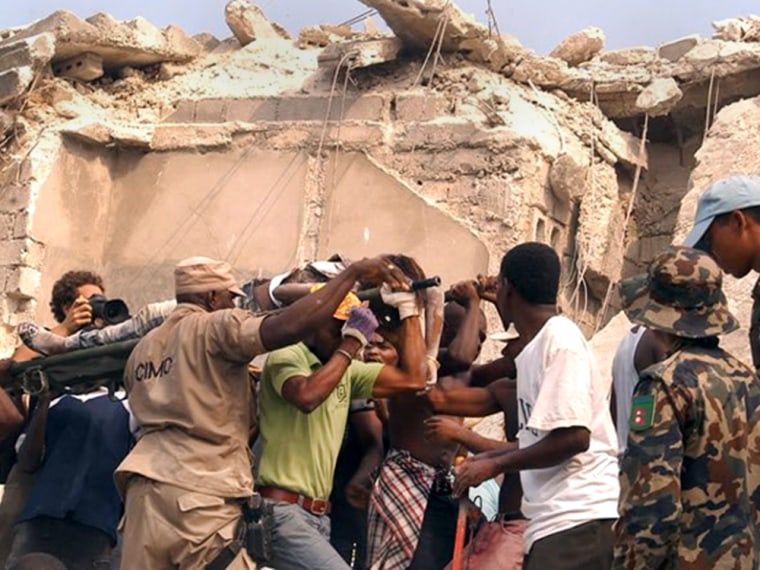Donating via text message:
- Text HAITI to 90999
American Red Cross
Donates $10 - Text HAITI to 25383
International Rescue Committee
Donates $5 - Text HAITI to 52000
Salvation Army
Donates $10 - Text YELE to 501501
Yéle
Donates $5 - Text HAITI to 864833
The United Way
Donates $5 - Text CERF to 90999
The United Nations Foundation
Donates $5 - Text DISASTER to 90999
Compassion International - Text HAITI to 20222
The Clinton Foundation
Donates $10
Relief organizations:
- Action Against Hunger, 877-777-1420
The U.S. State Department Operations Center said Americans seeking information about family members in Haiti should call 1-888-407-4747. Due to heavy volume, some callers may receive a recording. "Our embassy is still in the early stages of contacting American citizens through our Warden Network," the U.S. State Department said in a statement. "Communications are very difficult within Haiti at this time."
For those interesting in helping immediately, simply text "HAITI" to "90999" and a donation of $10 will be given automatically to the Red Cross to help with relief efforts, charged to your cell phone bill. (More information)
Finally, the FBI urges people who are looking for ways to help with earthquake relief to be wary of solicitations that could be from scam artists.
"Past tragedies and natural disasters have prompted individuals with criminal intent to solicit contributions purportedly for a charitable organization or a good cause," the FBI said, in passing along these tips:
- Ignore unsolicited e-mails, and do not click on links within those messages.
- Be skeptical of individuals representing themselves as surviving victims or officials asking for donations via e-mail or social networking sites.
- Be cautious of e-mails that claim to show pictures of the disaster areas in attached files, because the files may contain computer viruses. Open attachments only from know senders.
- Decline to give personal or financial information to anyone who solicits contributions.
- Make contributions directly to known organizations, rather than relying on others who claim in e-mails that they will channel the donation to established groups.
The FBI says anyone receipting an e-mail that appears to be a scam should forward it to this website: www.ic3.gov
